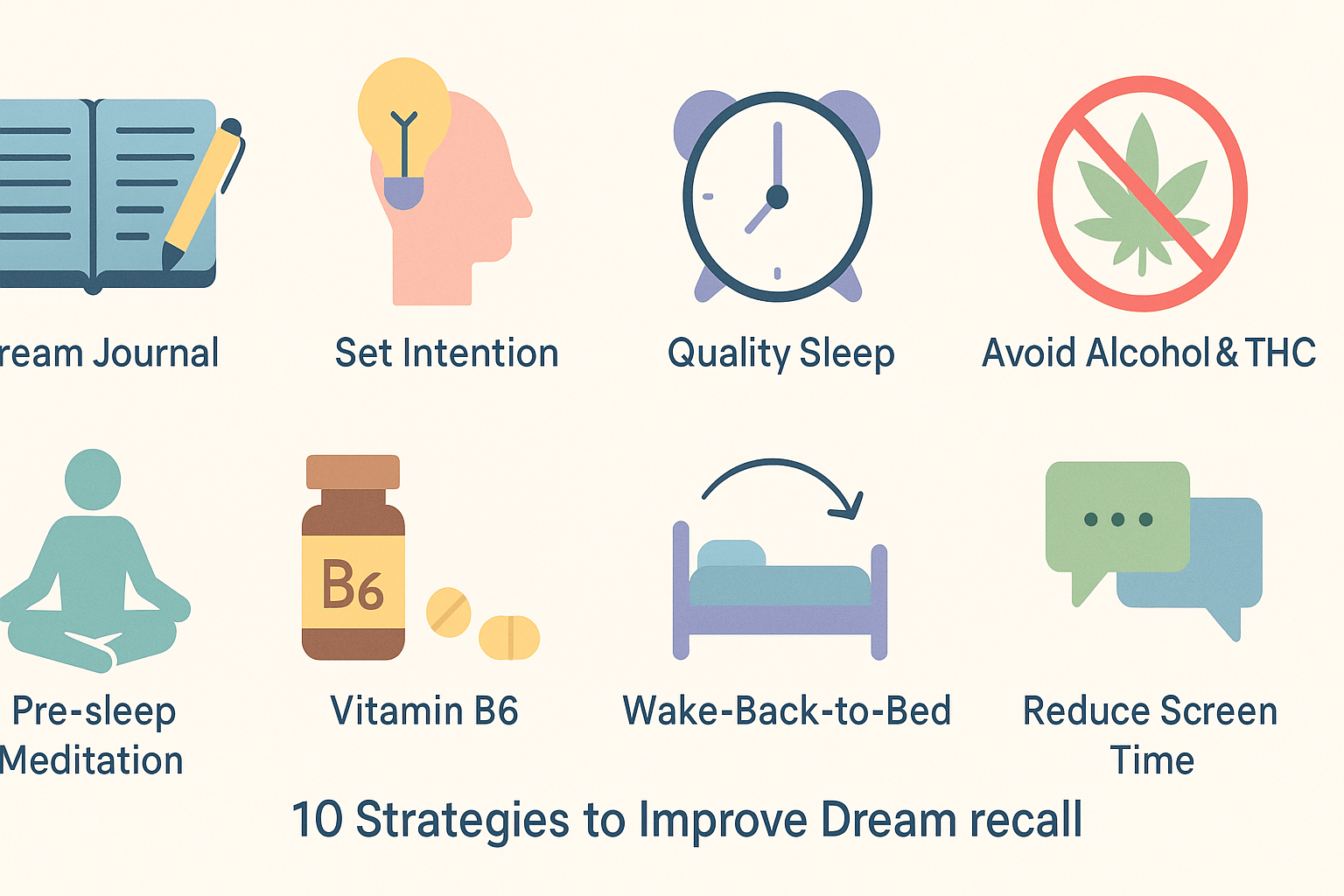How to remember your dreams:10 Science-Backed Strategies to Improve Dream Recall

1. Keep a Dream Journal
Start by placing a notebook and pen—or a voice recorder—within arm's reach of your bed. The moment you wake, jot down any dream snippets, no matter how brief, before they vanish from memory. Regular journaling trains your brain to treat dreams as important information worth retaining.
2. Set a Strong Intention
Before drifting off, tell yourself, "I will remember my dreams tonight." Explicitly committing this intention engages your subconscious in the recall process, a technique long recommended by dream researchers and popularized in lucid‑dream induction methods.
3. Wake During REM Sleep
Research indicates that waking someone during REM sleep results in dream recall about 80% of the time, compared to far lower recall rates when awakened during other stages. If possible, use a sleep tracker or alarm to wake you roughly 90 minutes after falling asleep, aligning with your first REM cycle.
4. Prioritize Quality Sleep
Aim for 7–9 hours of uninterrupted sleep each night, as sufficient duration allows multiple REM cycles, the stage when vivid dreaming occurs. Consistent bedtimes, a comfortable mattress, and a cool, dark room all contribute to deeper REM phases and better dream recall.
5. Avoid Alcohol and THC
Both alcohol and THC are known to fragment sleep architecture and suppress REM sleep, leading to fewer or less memorable dreams. Cutting back on these substances, especially in the hours before bedtime, fosters healthier REM cycles and clearer dream memories.
6. Meditate or Rest Quietly Before Bed
Twenty minutes of meditation or even a simple, quiet rest before hitting the pillow can increase theta brainwave activity, a state linked to improved memory formation and dream recall. This relaxed mental state sets the stage for more vivid and retrievable dreams.
7. Try Vitamin B6 Supplementation
Some studies have found that taking vitamin B6 before sleep can boost dream vividness and recall, possibly by aiding neurotransmitter activity involved in memory processing. Typical doses range from 50–100 mg, but it's wise to consult a healthcare professional before starting any supplement regimen.
8. Use the Wake‑Back‑to‑Bed (WBTB) Method
Set an alarm for 5–6 hours after you fall asleep, stay awake for 20–30 minutes engaging with your dream journal or reading about dreams, then go back to sleep. This approach increases your likelihood of re‑entering REM sleep consciously, dramatically improving your dream recall and lucidity.
9. Reduce Screen Time Before Bed
Limiting exposure to screens—and their blue light emission—in the hour before sleep helps preserve your natural melatonin cycle, leading to higher sleep quality and more consistent REM phases. Instead, wind down with a book, gentle stretches, or a warm bath to prime your mind for dreaming.
10. Discuss Your Dreams
Talking about your dreams with friends or a partner shortly after waking reinforces the memory traces in your brain. Socially sharing dream details—or even thinking them through mentally—can prompt further recollections and help cement the imagery for future recall.